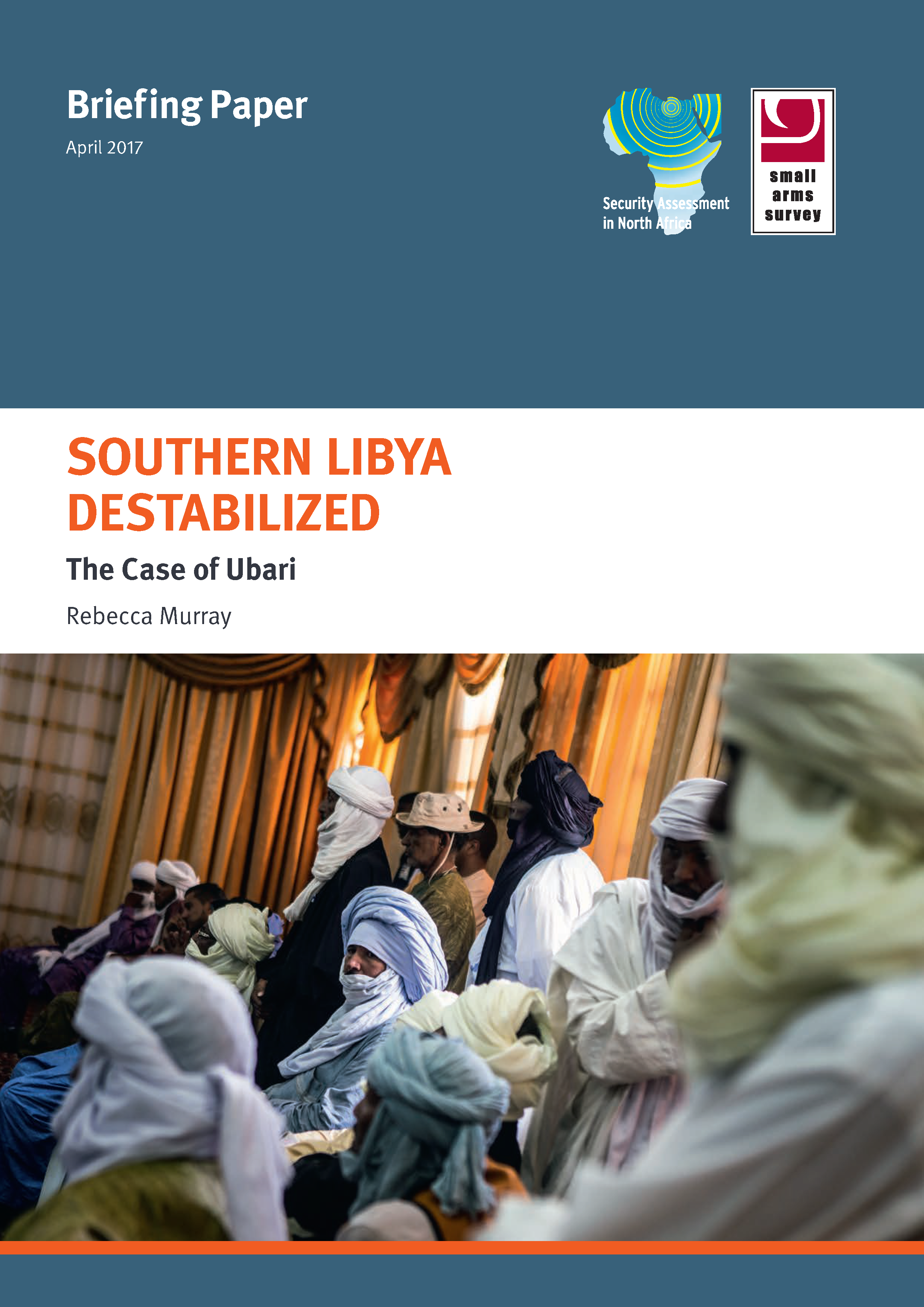
Southern Libya Destabilized: The Case of Ubari
Ubari, an oasis town in southern Libya’s Fezzan region, is home to members of both the Tuareg and Tubu tribes. These two tribes dominate this corner of Libya and contiguous desert regions in neighbouring countries. For over a century, relations between these tribes were peaceful, governed by an 1893 treaty known as the ‘Midi Midi’. The 2011 revolution in Libya did more than simply bring down the Qaddafi regime; it also brought down the intricately structured relationships of patronage and power that had kept the region firmly under central government control. By/In the fall of 2014, the conflicts that had raged across Libya since 2011 came to Ubari as well, shattering the old peace kept by/ the Midi Midi treaty.
Southern Libya Destabilized: The Case of Ubari, a Briefing Paper from the Small Arms Survey's Security Assessment North Africa (SANA) project explores the Ubari conflict. Written by researcher Rebecca Murray, the Briefing Paper follows the events, context, and outcomes of the 2014-2016 Ubari conflict and examines lingering threats to the stability of south-western Libya, and to the wider Sahel region. It notes that this conflict revolved around economic assets and identity rights at the local level. But—like many conflicts in Libya—the country’s rival national governments and associated international powers increasingly meddled in the fighting, causing the conflict to be viewed as a proxy war.
The peace that was eventually brokered to end the Ubari conflict is a fragile one. The town, its people, and its economy all remain heavily affected. The Briefing Paper concludes that, if the status quo persists, then the likelihood of renewed conflict is strong. Given the strong transnational family and tribal ties among both the Tuareg and the Tubu throughout the Sahel, the next conflict could easily spill beyond Ubari’s local confines and into the wider region.
Available in: ARABIC | ENGLISH
- Learn more about the Security Assessment in North Africa (SANA) project
Have your say about Small Arms Survey resources: take 5 minutes to fill out our questionnaire.